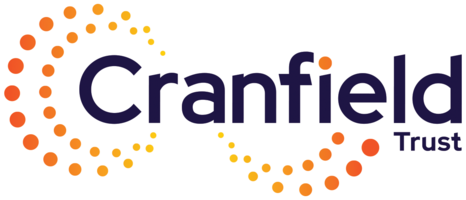Cranfield Trust first asked me to write an article about cash flow, what it is and why it was so important at the start of the covid pandemic in March 2020. The pandemic is now over, although the problems and crises caused by the lockdowns will be with us for some time to come. The UK is now facing a time of increasing inflation, particularly in energy and utilities, and this is leading to inflation in food and the rest of the economy. This inflation affects all charities and businesses and all of us as members of the UK economy.
Much of the article I wrote in March 2020 is still relevant for the cost-of-living crisis and inflation, but I have updated the article so that it is more relevant to the problems facing charities in 2022.
Cashflow is the name given to the process of money coming into an organisation and then being spent and going out of the organisation. In ordinary times, a charity, as any other business, maintains financial security by making sure that the amount of money spent does not exceed the amount of money received.
Cash is king - even if a charity has valuable assets if it does not have enough cash to pay its debts as they fall due it risks becoming insolvent and having to cease working.
We define inflation as, ‘a general increase in prices and fall in the purchasing value of money’. Inflation accordingly affects every charity in two ways; existing funds and income no longer buy the same amount of goods etc that they did in the past so that existing funds and income are no longer so valuable and as a result in order to buy the same amount of goods as in the past it is necessary to either reduce costs or increase income.
Charities' cash flow is at risk in three ways:
1. Reduced income
Incoming funds or donations are likely to be reduced because donors are themselves concerned about their own financial security. The cost-of-living crisis means that the cost of gas and electricity are likely to be tripled, for example, and there is constant information on the media about how people now have far less money available to do anything other than buy the basics. Sadly, giving donations to charities is likely to be reduced because of this.
2. Increased demand for your charity's services
Recipients of donations or services from the charity may increase in number or may demand increased help or services because of the cost-of-living crisis.
3. Donations are worth less
Secure and regular donations to charities that continue during the cost-of-living crisis are likely to lose in value because of the ongoing inflation. Even if all current donors can continue making the same regular donations, this will no longer be enough to achieve the aims of the charity that have been reached in the past.
It is possible to control cash flow by:
1. Listing income, updating budgets and your cash flow forecast
Listing all sources of income, assessing if or how they will be affected by the cost-of-living crisis and calculating what future income may be. Update budgets and cash flow forecasts with the new figures to show the effect of the change in income and when this will happen.
2. Seeking funds from alternative sources
Increase fundraising as far as this is possible. The cost-of-living crisis may give unexpected opportunities, e.g. people who are aware of the worsening problems experienced by many, may now want to give voluntary help to charities.
3. Listing all costs for the charity and the recipients of services or donations
If the updated income is not enough to pay all these costs or services/donations, then the costs, service or donations must be reduced. All unnecessary expenditure should be stopped, projects that can be postponed should be put on hold and recipients of services/donations could be prioritised. This could cause tough decisions, but it would be a very necessary process for the charity to survive to work in the future.
4. Make reasoned decisions
Using updated budgets and cash flow forecasts will give you more accurate information to work with and this will enable you to make reasoned decisions. These decisions and the reasons for them should be documented.
5. Cost of living crisis
The cost-of-living crisis, following on from the problems caused by the pandemic, should also be considered in the long term. No-one knows for sure when inflation will cease to be such a massive problem, but from information given in the media, it is unlikely to take just a few months. Consider joining forces with another charity. This does not have to be a charity that does exactly the same as you, but one that works in the same way, with the same mission or in the same sector. It may be possible to reduce costs in this way and control cash flow in the long term.
6. Consider all options
When thinking long term think ‘outside the box’ and consider all options. It has been reported that some small and medium-sized enterprises are now considering whether they should buy their premises rather than renting them, as they have in the past. Rents are likely to increase because of inflation and the cost-of-living crisis. Buying a property would avoid the increasing cost of rents and could also be an investment.
Top tips
1. Seek advice
Debt advisors provide useful, practical advice that could be of assistance. Talking to other charities could lead to ideas that may help - you are not on your own. Talk to your creditors, reschedule payments. It is a repetition but you are not on your own, everyone is affected by the cost-of-living crisis in some way and should understand the problems you are faced with.
2. Remember that cash is king
If you have recalculated your charity's cash flow, expenditure exceeds income, and it is not possible to change this, seek advice from an insolvency practitioner.
3. Do not delay
You are more likely to control your charity's cash flow by taking the above steps now.

Our thanks to our volunteer Caroline Clark for sharing her knowledge and insight into charity cash flow.
About the author
Caroline Clark is a long standing Cranfield Trust Volunteer, and director of RMCSC, a company she founded to provide independent, expert insolvency and anti-money laundering compliance consultancy advice. This includes peer reviews, insolvency compliance reviews, anti-money laundering Reg 21 audits and bespoke training.Caroline is a qualified as a mediator and has an MBA, as well as being a licensed insolvency practitioner. As a result of these qualifications, together with her experience in insolvency case work, regulation and compliance Caroline has been asked to write professional articles and to give written answers to insolvency technical and compliance queries.
Would you like help with your charity's finances?
Cranfield Trust volunteers, like Caroline, help eligible charities with areas including cash flow forecasting, financial strategy, scenario planning and improving financial processes.
Don't delay, contact us today!
Cranfield Trust volunteers cannot provide any advice on or review of investments, choice of investment/financial advisors or managers, bank accounts or other recommendations on services or products. Any areas regulated by the FCA: covered by the terms financial ‘advice’ which makes recommendations of specific financial products, or ‘guidance’ which gives information on different options, services or products.




